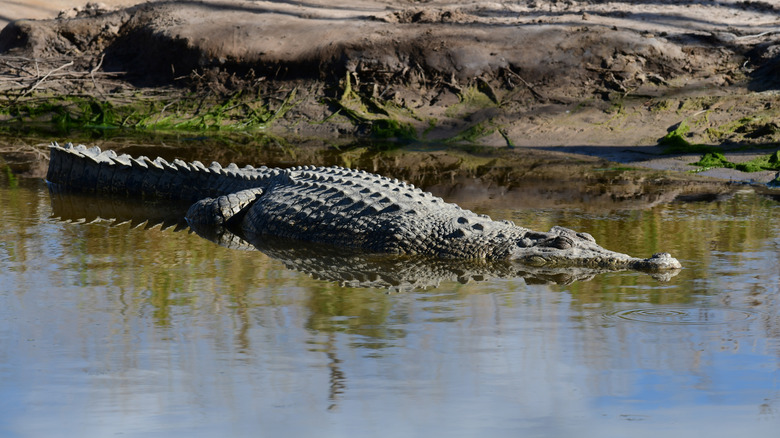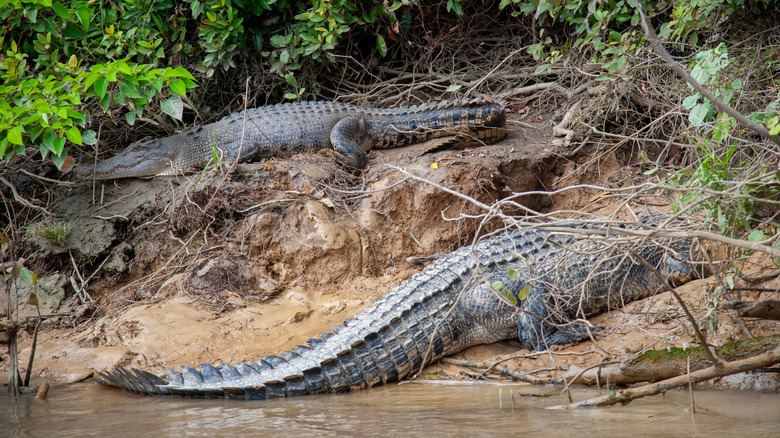Scientists Couldn't Figure Out How Crocodiles Island-Hopped So Fast - Until They Saw This Unique Behavior
Crocodiles may not be the friendliest of wild animals, but they can do some pretty remarkable things. They can live as long as humans in the wild, go months without eating, and have the most powerful bite of any living animal. Saltwater crocs, in particular, can also hold their breath with their unique respiratory systems for several hours while at rest. Also on the list of bragworthy skills is their ability to quickly travel from island to island, despite being mediocre long-distance swimmers. A 2010 study in the Journal of Animal Ecology found that saltwater crocodiles use favorable ocean currents and their ability to survive without food or fresh water for months to "surf" between islands.
No, this doesn't mean the reptiles somehow learned how to ride waves on foam boards. It means they time their travel with changing tides, riding currents for stretches up to 6 miles at a time. Researchers in Australia made the noteworthy discovery after tracking 27 crocs with underwater sensors. They learned that the reptiles drive with the current, both in rivers and open seas. Between surges, they rested on riverbanks. After all, what's the point in exerting more energy to travel a shorter distance?
Out of the crocodiles tracked, eight surpassed marathon distance, each traveling over 31 miles. One adventurous croc covered more than 34 miles through the open ocean, tackling over 6 miles a day. Another drifted a whopping 255 miles in 20 days, but one determined crocodile surpassed them all, gliding over 366 miles over 25 days.
Some scientists think crocodile water surfing is accidental, not intentional
Despite the data from the study, not all scientists agree on the crocodiles' water traveling behavior. James Perran Ross, a former wildlife ecologist at the University of Florida in Gainesville, thinks they're isolated mistakes, as opposed to intentional decisions. "Just heading off blindly downstream isn't much of a strategy," Ross told Scientific American. He believes the reptiles get caught in the current accidentally and end up having to go with the flow (pun intended).
Craig Franklin, one of the original researchers and a professor at the University of Queensland in Australia, stands by his findings that crocodiles do deliberately surf water currents. He believes it's a conscious decision to cover more distance and use less energy. "...if it is a mishap, why have other crocodile species not also made the same mistake?" Franklin shared in the same Scientific American article. His research included only saltwater crocodiles, also known as estuarine crocodiles.
If animals could talk, these reptiles could let us all know who's right about the surfing. Until then, we can enjoy the thought of crocodiles making the conscious decision to drift with the current for miles and miles to get from island A to island B in record time. Want to learn more about other giant reptiles? Read about the unique situation many sea turtles across the U.S. East Coast face.

